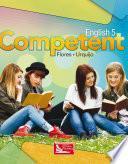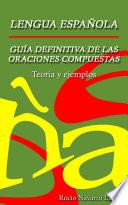English 5 Competent
Resumen del Libro

By the end of English 5, the students will be able to read, understand, write, summarize and structure information graphically that is presented in different types of texts written in English related to social, economic, scientific and technological progress of humanity. The purpose of English 5 of the series named Competent, is to provide English teachers with the material to cover in detail the fifth course of five from the DGETI system. Series´ goal: Students are expected to reach a B1 level according to the Common European Framework (CEF). at the end of the English program. This means, students must be able to do what is described for levels A1, A2, and B1. This is the goal of the English program at DGETI at the end of the five courses. It is expected that at the end of this fifth course, which may be considered a transition level between A2 and B1, the students will have developed skills at a higher A2 level and skills at a basic B1 level according to the CEF. B1 level is described as follows: The person is able to understand the main points of clear texts in standard language if they are about familiar topics, in work, school, or leisure situations. The person can perform in most of the situations that he/she can face when travelling in places where the target language is used. The person can produce simple and coherent texts that are familiar to him or her or are of his or her personal interest. The person is able to describe personal experiences, facts, wishes and desires, as well as briefly justify his or her opinions or explain his or her plans. The structure of English five is related to five central types of texts: Instructive, Narrative, Descriptive, Informative, and Exposition . Students will apply language functions according to the selected texts, emphasizing reading comprehension and diverse strategies and techniques for reading comprehension: • Intensive reading. • Make predictions (graphs, icons, typography). • Visualize. • Ask and answer questions. • Narrate and summarize. • Connect the text to life experiences, to other texts, or to previous knowledge. • Scanning (referrals, inferences, prefixes / suffixes). • Skimming (main and secondary ideas). • Graphic organizers (concept maps, mind maps, charts, graphs, etc.). During the five courses, the students participate in activities to practice language functions and reading strategies. In addition, activities to develop other productive competencies are included. Key features: The three steps of DGETI programs: Opening activities, Development and End of Unit evaluation, Five units, 15 lessons, Types of texts, Reading strategies, Vocabulary building sections. Listening, Reading, Writing, Speaking, and Interactive oral activities, Information Technologies to aid English proficiency www.sali.org.mx , offers audios, videos, vocabulary and more activities
Información del Libro
Total de páginas 180
Autor:
- Paula Flores Kastanis
- Katherine Urquijo Flores
Categoría:
Formatos Disponibles:
PDF, EPUB, MOBI
Descargar Libro
A continuación, te presentamos diversas opciones para adquirir el libro.
Valoración
4.2
19 Valoraciones Totales







